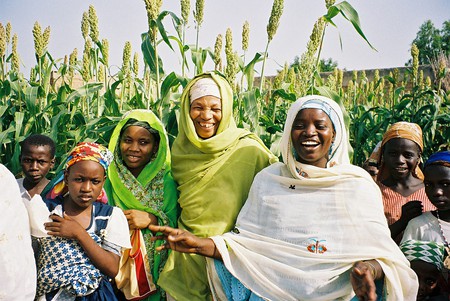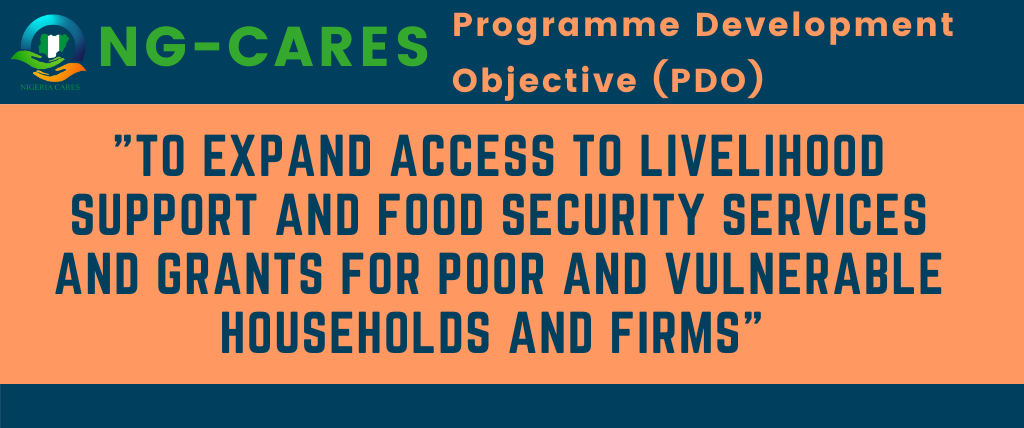What is NG-CARES
Nigeria COVID-19 Action Recovery And Economic Stimulus
BACKGROUND

COVID-19 pandemic is a global health emergency with far-reaching consequences on the economy, basic services, social unrest and livelihood of the poor and vulnerable.
In Nigeria, the pandemic led to the closure of many MSEs, loss of jobs, stalled provision of basic services in poor communities and thereby increasing the population of Nigerians living below the poverty line.
As a response to the hardship perpetrated by the COVID-19 pandemic and in line with the vision of the Federal Government of Nigeria to lift 100 million Nigerians out of poverty in ten years, the Federal Government of Nigeria, on behalf of the 36 states and the FCT, sought and obtained assistance from the World Bank to the tune of USD 750 Million for on-lending to the States and FCT to implement a two-year emergency response programme, named the Nigeria COVID-19 Action Recovery and Economic Stimulus (NG-CARES). Each State is allocated ex-ante USD 20 million, FCT $15 Million and the Federal CARES Support Unit is allocated USD 15 million.
The NG-CARES programme seeks to mitigate the impact of the COVID-19 crisis on the livelihoods of poor individuals, farmers, vulnerable households, communities and owners of micro and small enterprises. The financial instrument is Programme for Result (PforR) at the states and FCT while the Federal level is financed through the Investment Project Financing (IPF).

NG-CARES leverages on past, successfully implemented government interventions such as Community and Social Development Project (CSDP), Government Enterprise and Empowerment Programme (GEEP), National Cash Transfer Programme (NCTP), National FADAMA Programme, State Employment and Expenditure for Results (SEEFOR) and Youth Employment and Social Support Operations (YESSO) without creating another project implementation structure.
It is designed to support a budgeted programme of expenditures and interventions at the State level – targeting existing and emerging vulnerable and poor households, agricultural value chains, and Micro and Small Enterprises (MSEs) affected by the economic crisis.




